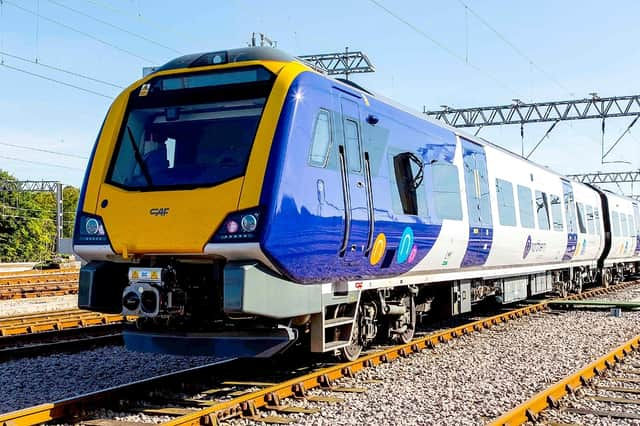Train strikes start next week with Grant Shapps calling out "greedy" drivers over disruption


PASSENGERS are expected to face “widespread disruption” to travel services after two rail unions announced strikes starting next week.
Drivers from the RMT and ASLEF unions will be “walking out” over a dispute in pay and working conditions.
Advertisement
Advertisement
The RMT will be striking on Wednesday, July 27 — on the day of the Women’s Euros semi-finals — and the action will also affected the opening of the Commonwealth Games in Birmingham.
ASLEF confirmed it would be striking on July 30, when the EFL begins and the Millers host Swansea City.
Transport secretary Grant Shapps has condemned the strikes — citing the chaos it will cause.


He said: “ASLEF train drivers earn almost £60,000 (median salary).
Advertisement
Advertisement
“That’s over two times the UK average and far more than the very workers who will be most impacted by the ASLEF’s premature strikes.
“It’s clear union bosses are more interested in orchestrating maximum disruption, rather than modernising the railway.”
However, RMT general secretary Mick Lynch said strike action is the “only course open to the union” due to a government “impass” on pay conditions.
With strikes set to go on for “as long as it takes” until a negotiation is reached”, Mick added: “The offer from Network Rail represents a real terms pay cut for our members and the paltry sum is conditional on RMT members agreeing to drastic changes in their working lives.
“Network Rail are still seeking to make our members poorer.
Advertisement
Advertisement
“The train operating companies remain stubborn and are refusing to make any new offer which deals with job security and pay.
“It is the government's shackling of Network Rail and the TOCs that means the rail network will be shut down for 24 hours.”
Network Rail’s chief executive Andrew Haines apologised for the impact the strikes wous have on travel.
He said: “Despite our best efforts to find a breakthrough, I’m afraid there will be more disruption for passengers next week as the RMT seems hell-bent on continuing their political campaigning, rather than compromising and agreeing a deal for their members.”
Advertisement
Advertisement
But ASLEF’s general secretary, Mick Whelan said the union does not want to strike but felt forced into it by failing to negotiate a pay rise in contradiction with the cost of living and inflation increases.
He added: “Strike action is now the only option available but we are always open to talks if the train companies, or the government, want to talk to us and make a fair and sensible offer.”